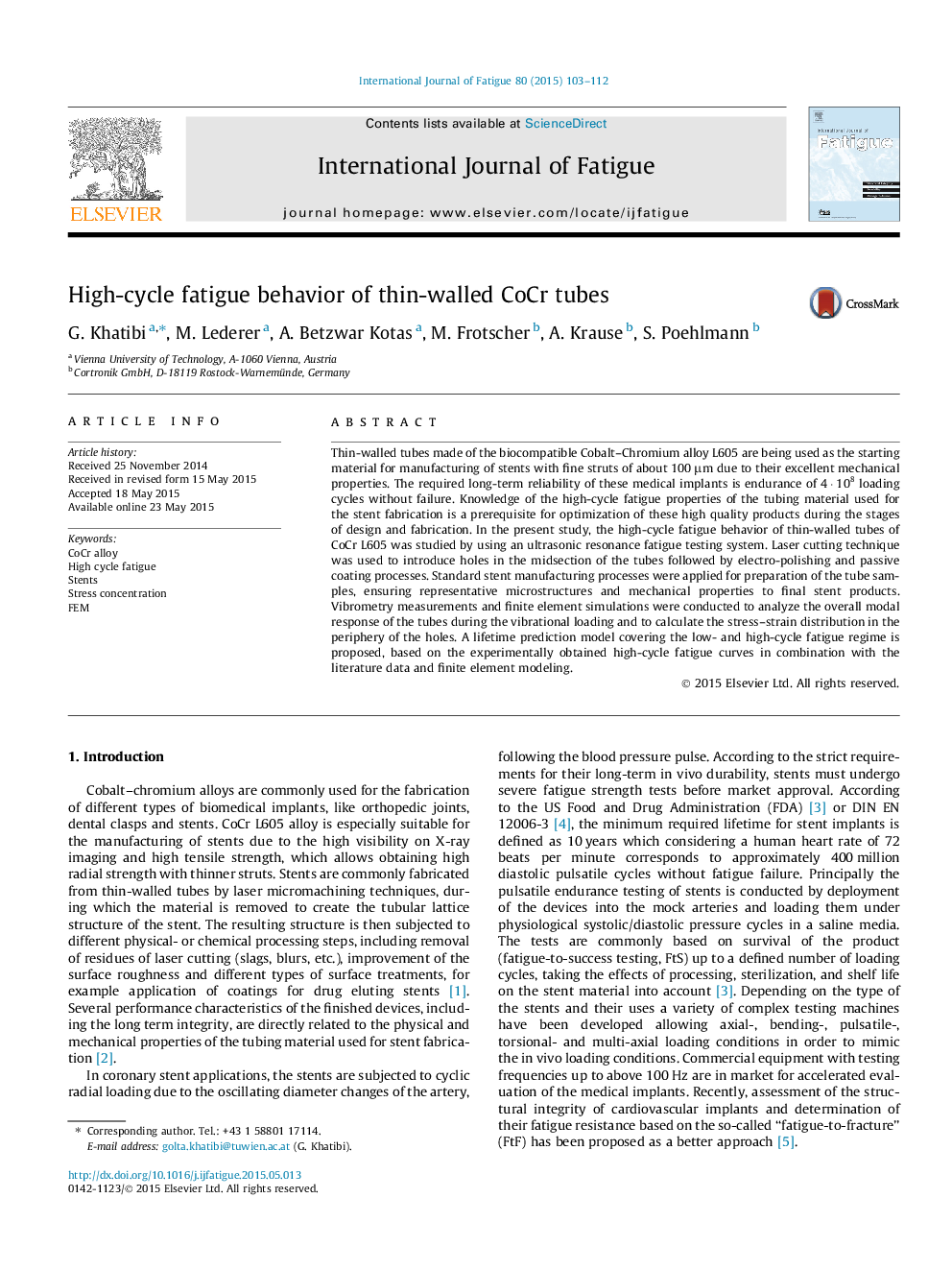| Article ID | Journal | Published Year | Pages | File Type |
|---|---|---|---|---|
| 776539 | International Journal of Fatigue | 2015 | 10 Pages |
•Very high cycle fatigue response of thin walled CoCr L605 tubes was studied.•The L605 tubing is used as starting material for stent fabrication.•The tube samples were subjected to all standard stent manufacturing processes.•Fatigue strength of the L605 stent material was 480 MPa at 400 million cycles.•A new lifetime prediction model was proposed for the L605 material.
Thin-walled tubes made of the biocompatible Cobalt–Chromium alloy L605 are being used as the starting material for manufacturing of stents with fine struts of about 100 μm due to their excellent mechanical properties. The required long-term reliability of these medical implants is endurance of 4·1084·108 loading cycles without failure. Knowledge of the high-cycle fatigue properties of the tubing material used for the stent fabrication is a prerequisite for optimization of these high quality products during the stages of design and fabrication. In the present study, the high-cycle fatigue behavior of thin-walled tubes of CoCr L605 was studied by using an ultrasonic resonance fatigue testing system. Laser cutting technique was used to introduce holes in the midsection of the tubes followed by electro-polishing and passive coating processes. Standard stent manufacturing processes were applied for preparation of the tube samples, ensuring representative microstructures and mechanical properties to final stent products. Vibrometry measurements and finite element simulations were conducted to analyze the overall modal response of the tubes during the vibrational loading and to calculate the stress–strain distribution in the periphery of the holes. A lifetime prediction model covering the low- and high-cycle fatigue regime is proposed, based on the experimentally obtained high-cycle fatigue curves in combination with the literature data and finite element modeling.
